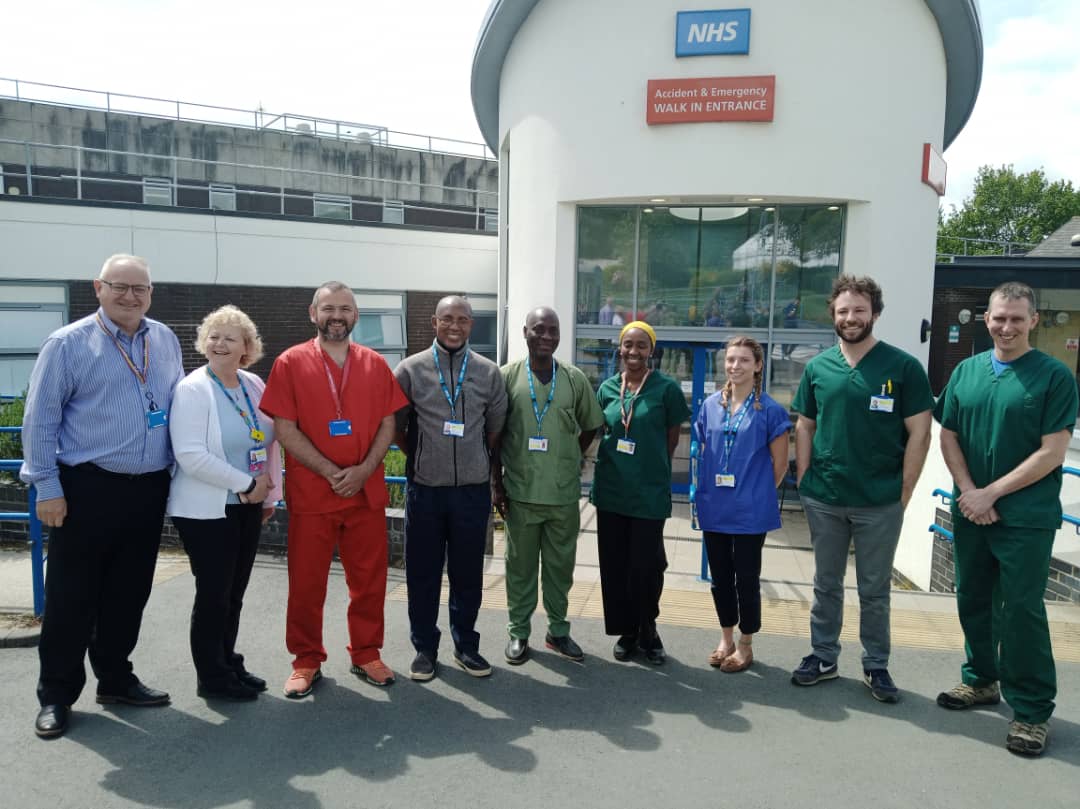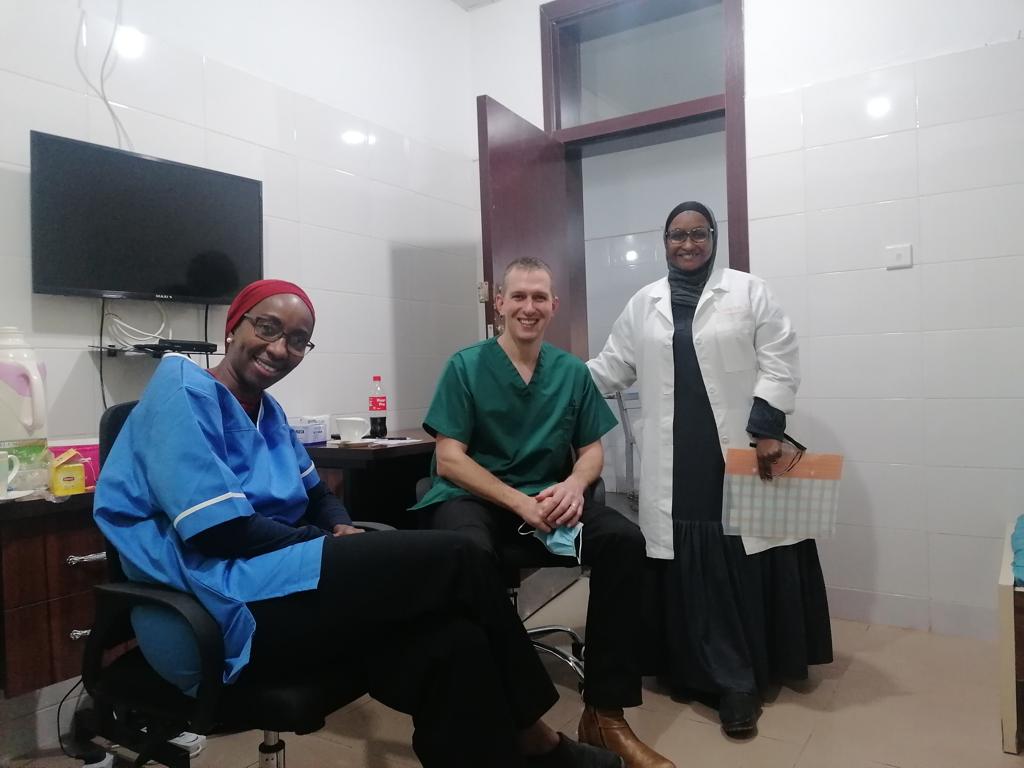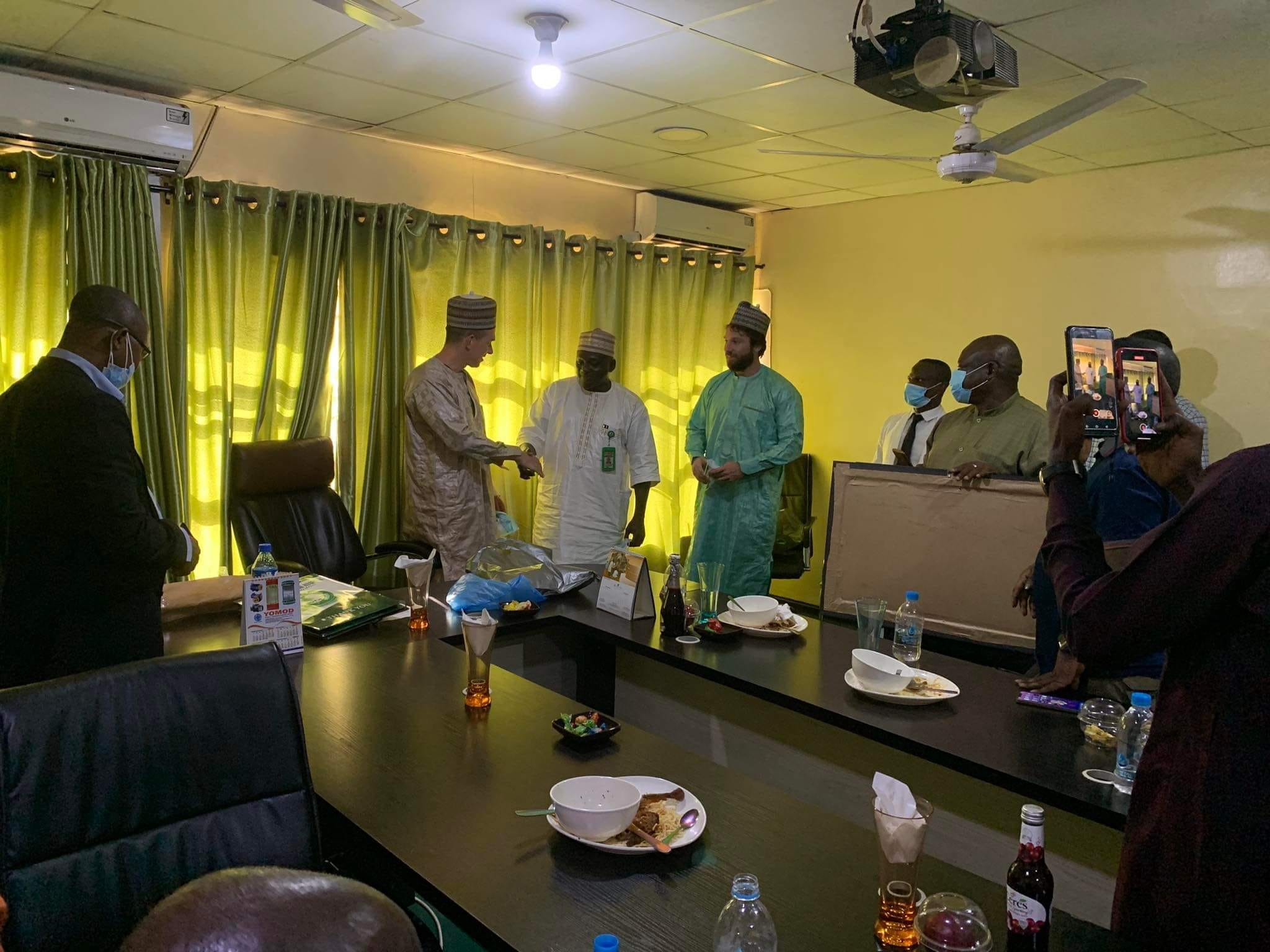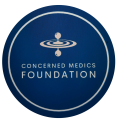Who We Are?
Our MissioN
Educate healthcare professionals, provide cost effective healthcare to the community, and promote good health practices by partnering with community hospitals and physicians.
We facilitate collaboration and networking opportunities among diaspora doctors, local healthcare providers, and organizations to enhance knowledge-sharing and innovation in healthcare.

Our
Transform the lives of the people we serve by providing exceptional medical services.
Our vision is to empower and transform healthcare in Kaduna state of Northern Nigeria through the collaboration and expertise of diaspora doctors. We envision a region where every individual has access to high-quality, culturally sensitive healthcare services, delivered by a network of skilled and supported healthcare professionals.
By fostering meaningful partnerships and leveraging innovative solutions, we aim to bridge healthcare gaps, improve patient outcomes, and contribute to sustainable health systems in Kaduna, Nigeria. We aspire to create a supportive ecosystem that values diversity, embraces innovation, and promotes excellence in medical care.
Through our commitment to integrity, transparency, and community engagement, we seek to lead by example and inspire positive change in healthcare delivery. Our ultimate goal is to build a healthier and more equitable future, where diaspora doctors play a pivotal role in advancing healthcare access and quality.
Join us on this journey as we work towards a brighter and healthier tomorrow for all communities in Kaduna state of Northern Nigeria.
All medical and surgical disciplines are included in our discussion of the various clinical practise areas in emergency and planned hospital care, including infection prevention and control procedures, patient safety, clinical governance, and risk management.
Our Core Values
Commitment to Excellence: We strive for excellence in all aspects of our work, aiming to deliver the highest quality support and resources to diaspora doctors and healthcare providers in Northern Nigeria.
Collaborative Spirit: We believe in the power of collaboration and teamwork. By fostering partnerships and sharing knowledge, we amplify our impact and drive positive change in healthcare.
Empathy and Cultural Sensitivity: We approach our mission with empathy, respecting diverse cultures and understanding the unique challenges faced by healthcare professionals in Northern Nigeria.
Community Engagement and Empowerment: We are deeply committed to engaging with local communities, empowering healthcare providers, and advocating for sustainable healthcare solutions.
Continuous Learning and Growth: We foster a culture of continuous learning and professional development, supporting the growth and well-being of diaspora doctors and healthcare teams.
Impact-Driven Approach: We are results-oriented and focused on achieving meaningful impact. Our actions are guided by measurable outcomes and a dedication to making a lasting difference in healthcare outcomes.
How are we
Our goal was to give every health worker we could reach reusable face shields and masks. We chose a few locally created prototypes to test, working with engineers, textile producers, and health professionals. These were then given production and distribution orders. The team produced over 14,000 face shields and over 10,000 face masks in a short amount of time, distributing them to frontline workers around the nation. Healthcare professionals have overwhelmingly given positive feedback. After that, we started a series of monthly educational.
sessions, with the first concentrating on the quickening flow of medical “brain drain” out of Nigeria.
As the pandemic entered its post-peak phase, it was time to consider how our organisation could help solve the flaws in our healthcare systems. In order to reflect the group’s broader interests, a new organisation called the Concerned Medics Foundation (CMF) was established. This would be done by suggesting realistic solutions that may be made possible with the right engagement with governments and policy makers.

Our Aim
Concerned Medics Foundation aims to use a recently developed network of Nigerian doctors locally and in the diaspora in order to improve and enhance the healthcare system in Nigeria.
Key areas that we think we can make a big difference are: –
• supporting advanced clinical practice
• recruitment and training of allied health professionals
• developing and supporting patient safety initiatives
We aim to address the different realms of clinical practice in emergency and planned hospital care across all medical and surgical specialties, including infection prevention and control practices, patient safety, clinical governance and risk management.
Our
One of the major obstacles to the development of appropriate healthcare in the nation has been the ‘brain drain’ of qualified doctors that has occurred across the nation over the past 20 years. The post-pandemic policy changes in several western nations that have made it easier for doctors to migrate into service positions and training roles with the goal of improving their own healthcare systems are aggravating this situation. Poor postgraduate training possibilities and low pay have further lowered the already low morale of qualified doctors.
Due to the current low morale among qualified doctors and the inadequate postgraduate training opportunities and pay packages, which all act as driving forces for brain drain, there are insufficient healthcare professionals in all states, including Kaduna State.
Out of the 200 million people living in the nation, 66.8 million (33.4%) are unemployed, which is a significant unemployment rate. Of them, 25.4 million hold certificates or university degrees, some of which are in the subjects of biology, chemistry, and biomedical sciences, which are the natural sciences. We see a way to attract some of these bright young minds to allied health occupations like physician associates, advanced nurse practitioners, and allied health professionals. One strategy that could improve the state’s healthcare resource capacity is a recruiting campaign for such positions, accompanied by an emphasis on scholarships for healthcare training. The knowledge and enthusiasm of our network of doctors in Nigeria and the diaspora provide the Foundation with the chance to support this.
In addition, worldwide epidemics of Ebola, Lassa Fever, MERS, Swine Flu, and Covid SARS2 have occurred over the past 20 years. More of these epidemic and pandemic outbreaks are expected in the future. The WHO has also determined that infections and trauma account for the majority of emergency care costs in low- and medium-income countries (LMIC), with trauma predicted to overtake cancer as the third-leading cause of death by 2030. Diseases including ischemic heart disease, cerebrovascular illness, and cancer are all expected to increase as a result of the increasingly western way of life we lead. This emphasises the requirement for creating adaptable health systems that can control these occurrences.
While the aforementioned problems are common to most LMIC and undoubtedly in most states in Nigeria, a gap analysis must be performed specifically for Kaduna State in order to enable prescriptive solutions that would target particular areas for improvement. This makes it essential for any partnership between the State and the Foundation.
Implementing sustained solutions for healthcare improvement requires a combination of political will, leadership, and accountability.
Through the ABCD programme, the Concerned Medics Foundation is now working with the Barau Dikko teaching hospital. will make use of the knowledge and abilities of CMF members both locally and abroad, as well as any other tools we have at our disposal. CMF advises that the State choose one of its institutions as the pilot base for this partnership in order to create a realistic project.
Our Core Values
CMF will create training modules on patient safety, clinical governance, infection control and prevention techniques, critical care, safer surgery, mother and child health, and acute and emergency care.
Interactive virtual and in-person training sessions, as well as hands-on workshops, will be used to deliver the modules. We have a group of licenced physicians who are ready to take time off from their existing jobs in the UK, the USA, and other countries to travel to Nigeria and assist with ongoing training and service delivery. The government will be counted on to support the provision of security, lodging, and transportation.
Our goal is to create a plan for exchange that would give Nigerian doctors access to a time of observership in the UK and vice versa. The State government would pay for this.
In the long run, the Foundation is considering working with state governments to establish allied health positions that would complement the state’s healthcare personnel. For graduates of the natural sciences, this will take the shape of creating a training programme for physician associates. As in presently operating programmes in the UK and elsewhere, the training would last for two years, with the first year spent at Kaduna State University and the second year spent on hospital rotations (for instance, at Barau Dikko Hospital).
A three-year contract with the state government sponsoring trained PAs might be necessary. The same is true for nurses, who can upgrade their competencies to take on advanced nurse practitioner jobs. This is consistent with comprehensive human resource and workforce planning undertaken to address the massive healthcare workforce crisis in other regions of the world.
By improving annual planning and performance reviews, including health care finance reforms and innovations, we can increase the health system’s capacity and skills. The health system will become more accountable, transparent, and effective as a result.
We anticipate the Government’s acknowledgement being favourable. The CMF is adamant that the government and the medical community must work together to address the severe healthcare issues that have dogged Nigeria for years. A strong relationship between the government’s visionary leadership and the passion, commitment, and drive of the CMF membership will start to bring about real healthcare transformation.

